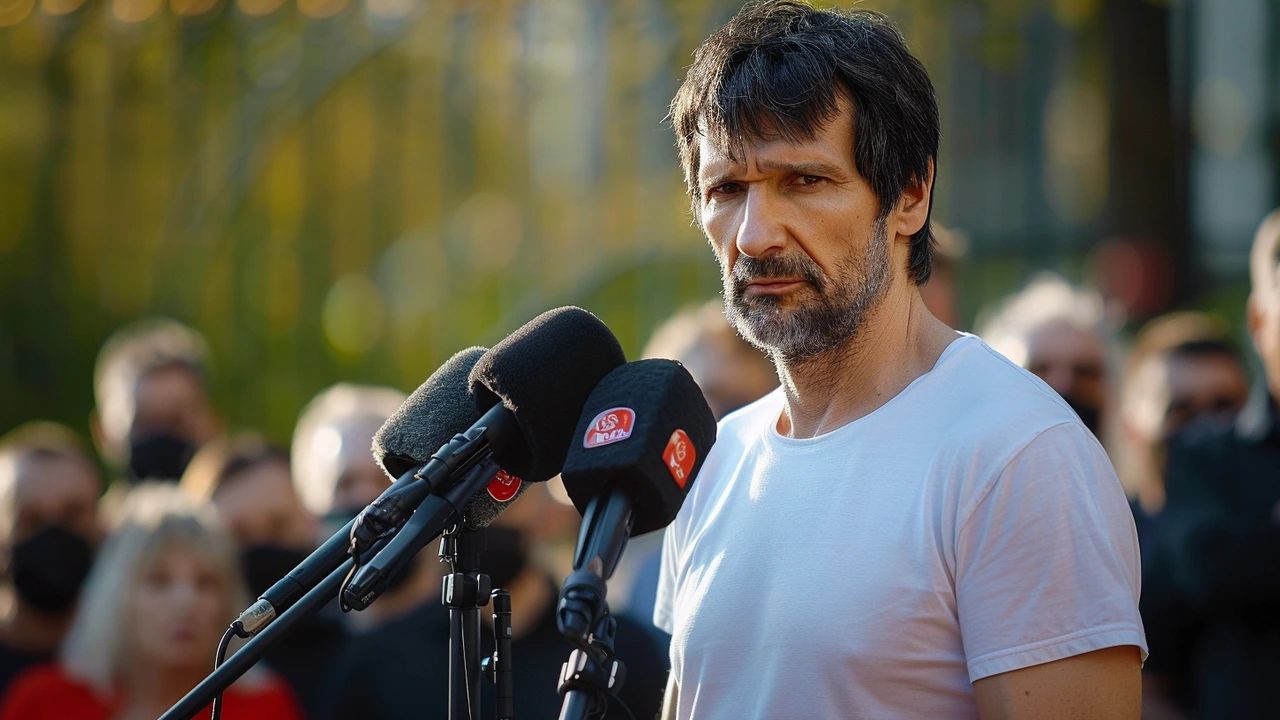
Slovak Prime Minister Robert Fico Survives Assassination Attempt, Undergoing Intensive Care
Slovak Prime Minister Robert Fico is currently in a stable condition after surviving an assassination attempt that sent shockwaves through the country. The attempt on his life occurred as he was greeting supporters following a government meeting in Handlova. Remarkably, despite being shot four times, Fico’s condition improved significantly after undergoing two emergency surgeries. Deputy Prime Minister Robert Kalinak confirmed on Sunday that while Fico's prognosis is stable, he remains in intensive care in a hospital in Banska Bystrica.
A Sudden and Shocking Attack
The attack took place in a seemingly routine moment of engagement with supporters. Fico was in Handlova for a government meeting when the assailant, a 71-year-old poet named Juraj Cintula, opened fire. The prime minister was immediately rushed to the hospital, where he underwent two critical surgeries to address the injuries from the bullets. The surgeries were successful in stabilizing his condition, though the road to full recovery will require ongoing intensive care and monitoring. The incident stunned the nation, leading to an outpouring of concern and support from both the public and political figures.
Political Climate and a Divisive Atmosphere
The attempted assassination has further complicated an already tense political environment in Slovakia. Robert Fico, known for his contentious stances on issues such as Russia and Ukraine, has been a polarizing figure in Slovak politics. The country has been experiencing deep political divisions since the 2018 murder of investigative journalist Jan Kuciak and his fiancée, which ignited widespread protests and led to Fico’s resignation at the time. The current attack on Fico has reignited these divisions, with political parties and leaders quick to point fingers and assign blame.
In response to the attack, several political parties have decided to suspend their campaigns for the upcoming European Parliament elections in June out of respect and concern for the tense climate. However, the blame game has only intensified, with accusations flying between parties and against the media for allegedly contributing to a hostile environment. The underlying political tensions, already at a boiling point, have reached new heights as the nation grapples with the implications of this violent act.
Suspect in Custody: The Assailant
The suspected gunman, Juraj Cintula, has been apprehended and charged with premeditated attempted murder. Cintula’s motives remain a subject of investigation, but his act of violence has brought to light the extreme tensions within the country. The fact that the assailant is a poet adds a layer of complexity and curiosity to the case, raising questions about what led an individual associated with the arts to undertake such a drastic action. The authorities are working diligently to piece together Cintula's motivations and any potential affiliations or influences that might have contributed to the assassination attempt.
Social Media and Public Reaction
The attack on Fico has also led to scrutiny of social media platforms, where various individuals expressed approval of the assassination attempt. Law enforcement agencies have charged these individuals for incitement and promoting violence, highlighting the role of social media in exacerbating tensions. The widespread shock and condemnation of the act have been accompanied by a reevaluation of how political discourse is conducted both online and offline. The role of social media in shaping public opinion and potentially inciting violent actions has become a focal point of discussion in the aftermath of the attempt on Fico’s life.
A Nation at a Crossroads
As Robert Fico continues to recover from his injuries, Slovakia finds itself at a critical juncture. The attack has forced a reckoning with the toxic political environment that has been brewing for years. It has brought to the forefront issues of political violence, media responsibility, and the role of public discourse in shaping national stability and security. The coming weeks and months will be crucial in determining whether Slovakia can move towards a more stable and cohesive political climate or if the divisions will only deepen further.
For now, the focus remains on Prime Minister Fico’s recovery and the nation’s response to this unprecedented event. The implications of the assassination attempt are far-reaching, impacting not only the political landscape but also the social fabric of Slovakia. As the nation waits for further developments, the hope is that this tragic incident can lead to a period of reflection, dialogue, and ultimately, healing.





